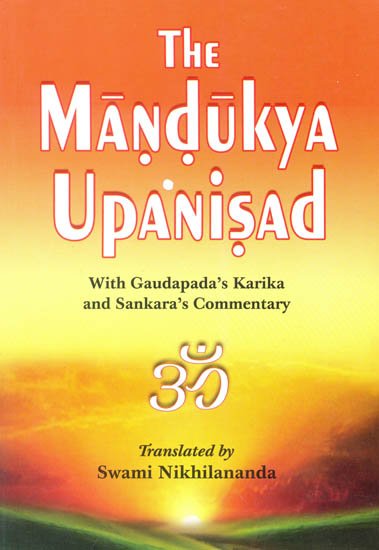Mandukya Upanishad (Gaudapa Karika and Shankara Bhashya)
by Swami Nikhilananda | 1949 | 115,575 words | ISBN-13: 9788175050228
This is verse 4.18 of the Mandukya Karika English translation, including commentaries by Gaudapada (Karika), Shankara (Bhashya) and a glossary by Anandagiri (Tika). Alternate transliteration: Māṇḍūkya-upaniṣad 4.18, Gauḍapāda Kārikā, Śaṅkara Bhāṣya, Ānandagiri Ṭīkā.
Mandukya Karika, verse 4.18
Sanskrit text, IAST transliteration and English translation
यदि हेतोः फलात्सिद्धिः फलसिद्धिश्च हेतुतः ।
कतरत्पूर्वनिष्पन्नं यस्य सिद्धिरपेक्षया ॥ १८ ॥yadi hetoḥ phalātsiddhiḥ phalasiddhiśca hetutaḥ |
kataratpūrvaniṣpannaṃ yasya siddhirapekṣayā || 18 ||18. If the cause is produced from the effect and if the effect is, again, produced from the cause, which of the two is born first upon which depends the birth of the other?
Shankara Bhashya (commentary)
Though any relation between cause and effect has been found to be an impossibility, yet it may be contended by the opponent that the cause and the effect, though not causally related, yet depend upon each other for their mutual existence. As a reply to this contention we ask: Which of the two, the cause and the effect, is antecedent to the other, upon the previous existence of which, the subsequent existence of the other is dependent?
Anandagiri Tika (glossary)
If both the cause and the effect are mutually dependent, then how can we say that one is prior to the other? If the priority of one cannot be established, then it cannot be proved that one is dependent upon the other for its existence.
